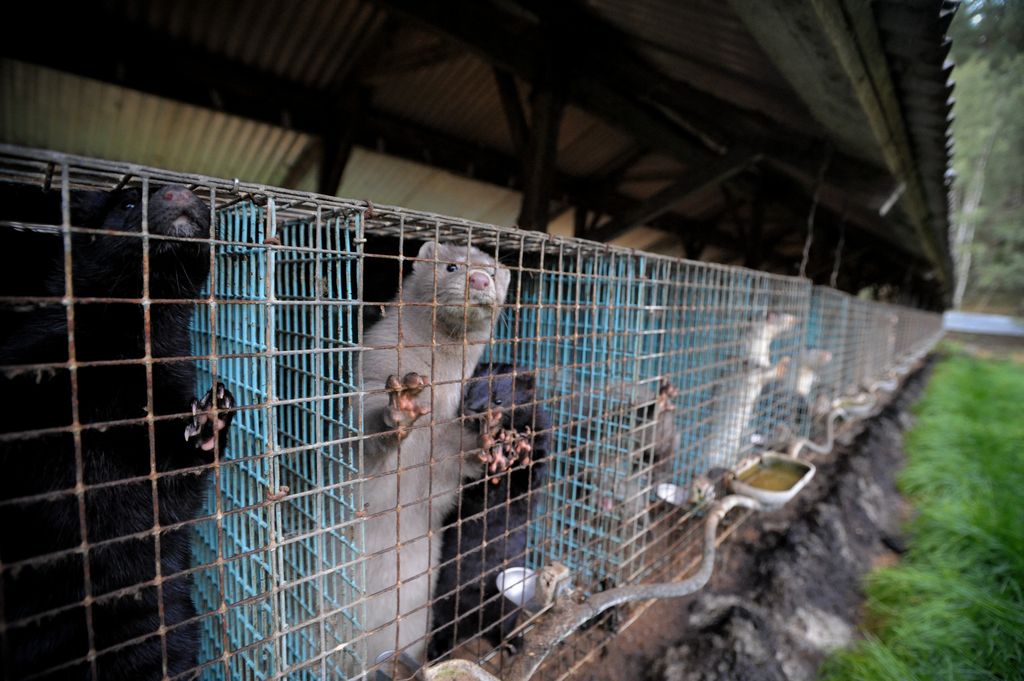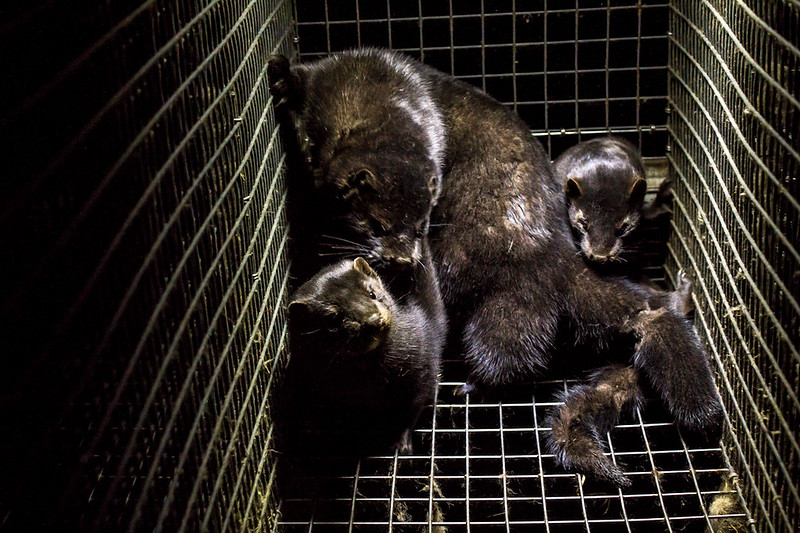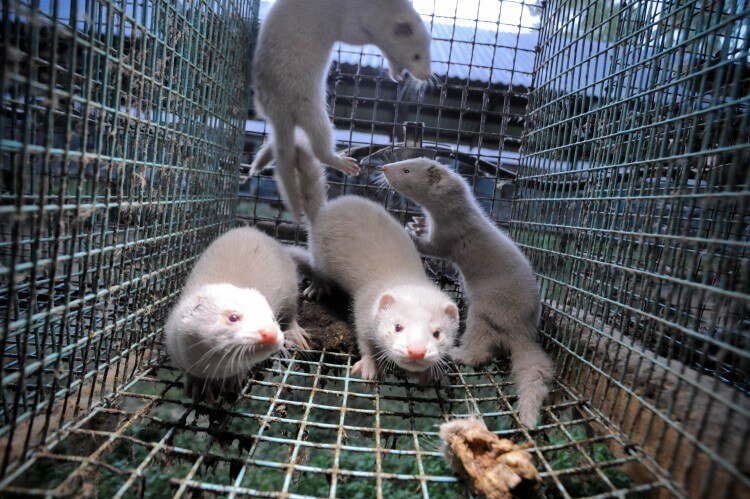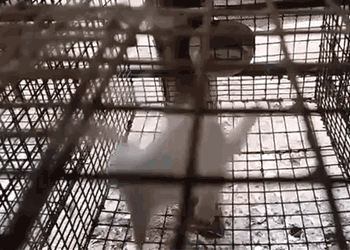- Inspiring People -
- 8mins -
- 197 views
Dutch parliament finally votes to end mink farming this year, following Covid-19 outbreak
Politicians in the Netherlands have voted in favour of closing all the country’s mink farms by the end of the year after several outbreaks of coronavirus led to thousands of the animals being culled.
Dutch MPs vote to close all mink farms by the end of the year and compensate fur farmers
Politicians in the Netherlands have voted in favour of closing all the country’s mink farms by the end of this year after several outbreaks of coronavirus led to thousands of the animals being culled. At least two workers at mink farms in the Netherlands are believed to have been infected with coronavirus in what the World Health Organization said could be the first known cases of animal-to-human transmission of the virus. Health authorities slaughtered more than 1,500 of the captive animals this month as a precaution after coronavirus surfaced in a handful of mink farms in the southern Netherlands.

Dutch parliament votes to end mink farming by end of year (and about time too!)
In the Netherlands earlier this month, the Labour Party and Party for Animals tabled a vote on banning mink farming, which passed on Wednesday 24 June. The motion now has to be approved by the upper house of the Dutch government. If it passes, the new law will hasten the closure of the country’s estimated 128 mink farms, which were due to be phased out by the end of 2023.
The animal rights charity, PETA, described the proposed ban as “common sense” and called on other mink farming nations such as China and Denmark to ban the trade.
“PETA hopes the Netherlands will be the first of many countries to see the writing on the wall and shut down cruel fur farms or risk being the source of the next pandemic,” said the charity’s director, Elisa Allen.
In a statement, Humane Society International urged the Dutch government to pass the motion to ban the country’s mink fur trade: “HSI urges the government to listen to parliament, act now to end cruel and dangerous fur farming for good.”
The Netherlands is not the only country making moves to reduce the trade in animals in the wake of coronavirus, reported Positive News. China, where the outbreak began, has since banned the consumption of all wildlife and removed pangolin scales from a list of approved traditional medicines.
Source: Positive.News

Did a human just catch coronavirus from a mink?
Dutch authorities announced this week that they suspect a mink has transmitted the coronavirus to a worker at a fur farm in the Netherlands. If confirmed, this would be the first concrete evidence of a specific species passing the virus to a human.
Analysis found strong similarities between the virus in the worker and in the minks, making it plausible that the virus jumped species. “Based on this comparison and the position of that form of the virus in the family tree, the researchers concluded that it is likely that one staff member at an infected farm has been infected by mink,” the Dutch government said in a statement.
Even if the mink-to-human transmission is confirmed as the first known animal-to-human case, Dutch officials emphasise that there’s very little risk to the general public from this incident or from fur farms in general. The farm worker who contracted the coronavirus has recovered.
Currently there are more than 800,000 mink living on Dutch farms and, according to the Ministry of Agriculture, Nature and Food Quality, the industry brings in about £80 million a year. In the wild, the weasel-like animals live in or near water. Their soft fur has long been coveted for clothing, particularly in China, the top importer of mink pelts.
Source: NationalGeographic

Unions say poor conditions in meat plants fuel Covid-19 outbreaks
The coronavirus outbreaks that have struck workers in meat-processing plants around the world are due to poor working conditions and living quarters in a sector that is in a “disastrous race to the bottom” in the quest for cheap meat, trade union representatives have said, according to The Guardian.
Meat plants have persistently been centres for outbreaks, with some of the biggest clusters in the US and Canadafocused on slaughterhouses. According to the Food & Environment Reporting Network (Fern), which has been tracking the outbreaks, nearly 30,000 meat-plant workers across the US and Europe have been infected with the virus and more than 100 have died.
“The entire sector is in a disastrous race to the bottom, driven by the market and by consumer demand for cheap meat,” Peter Schmidt, the head of international affairs at the German food workers union NGG, told The Guardian. Schmidt claimed modern plants in Germany brought in contract workers from Eastern Europe who were prepared to put up with low wages.
“The working conditions in these plants are the absolute worst; cold, close together, working at high speed. And the housing, it is like in slavery times. When we were looking at it, we found that people were having to share beds. You do a 12-hour shift and then you change over.”
US meat plants have been hit even harder than European plants, leading to a supply chain crisis involving at least 27,000 infections and 86 deaths, according to Fern. Several million farm animals have been euthanised. In May, Donald Trump signed an executive order to keep meat plants open.
Source: TheGuardian

Dr. Jane Goodall: It’s Time to Rethink Our Destructive Relationship With the Natural World
Every species has a role to play in the complex web of life, says Dr. Jane Goodall. For example, deforestation in the Congo Basin, the Amazon, and the tropical forests of Asia may seem unimportant to people in the United States or Europe, yet the loss of these forests (as well as other ecosystems) is altering global weather patterns and affecting people in all parts of the world.
We humans are part of the natural world—we relate to each other and with all the other animals who inhabit the planet with us. Similarly, in many parts of the world, people may not know—or care—about the little animal called a pangolin (or scaly anteater). But that changes once they know the role that pangolins probably played in the emergence of the current pandemic of the novel coronavirus, COVID-19.
Close proximity to wild animals, especially in “wet markets” that sell live animals, can give rise to diseases caused by viruses that cross the species barrier and jump into us. The SARS outbreak originated in a meat market in China from a civet (a small mammal), MERS from a camel in the Middle East. Evidence suggests that COVID-19 may have originated in bats, transferred to pangolins, and then infected humans at a live animal market in China. Of the many new diseases that have emerged since 1960, scientists estimate that more than half were caused by transmission from other species to humans.
The global demand for wildlife, the destruction of the natural world, and the spread of diseases are already having a catastrophic effect on the world as we know it.
We are in the midst of the Sixth Great Extinction, says Dr. Goodall. The balance of nature has been disturbed, and the suffering of humans and other animals has increased.
We are currently in a somewhat unprecedented moment of realising just how vulnerable each one of us is to problems that may start far away from us, in other species, in other parts of the world. COVID-19 is many things, but it is also a reason to reckon with the enormous impact that something damaging the natural world can have on us as individuals.
We are now feeling the true cost of wildlife trafficking and the destruction of the natural world that brings us into closer contact with wildlife.
Thankfully, a strict ban of wildlife trafficking was implemented in China soon after the emergence of COVID-19, including forbidding the importation, selling, and eating of wild animals. And other countries, like Vietnam, are following suit. Currently these measures do not ban trade for fur, medicine, or research.
This is a global trade, and every country and individual must do its part to create more comprehensive legislation to protect wildlife, end illegal trafficking, ban trafficking across national borders, and ban sales (especially online). And we must fight corruption that allows these activities to continue even when they are banned or illegal. We must be much more vigilant about not handling or being in close proximity to wildlife to protect ourselves and them.
Solutions are within our grasp. The laws we create now to protect wildlife will also protect human communities. Restoring and protecting forests through legislation and empowering local communities will save species and prevent disease transmission. Creating alternative sustainable livelihoods will create more resilient, successful human communities. It is desperately important, in the window of time remaining, that we should all do our bit to heal the harm we have inflicted on the natural world—of which we are a part.
From a longer article by Dr. Jane Goodall for SLATE


